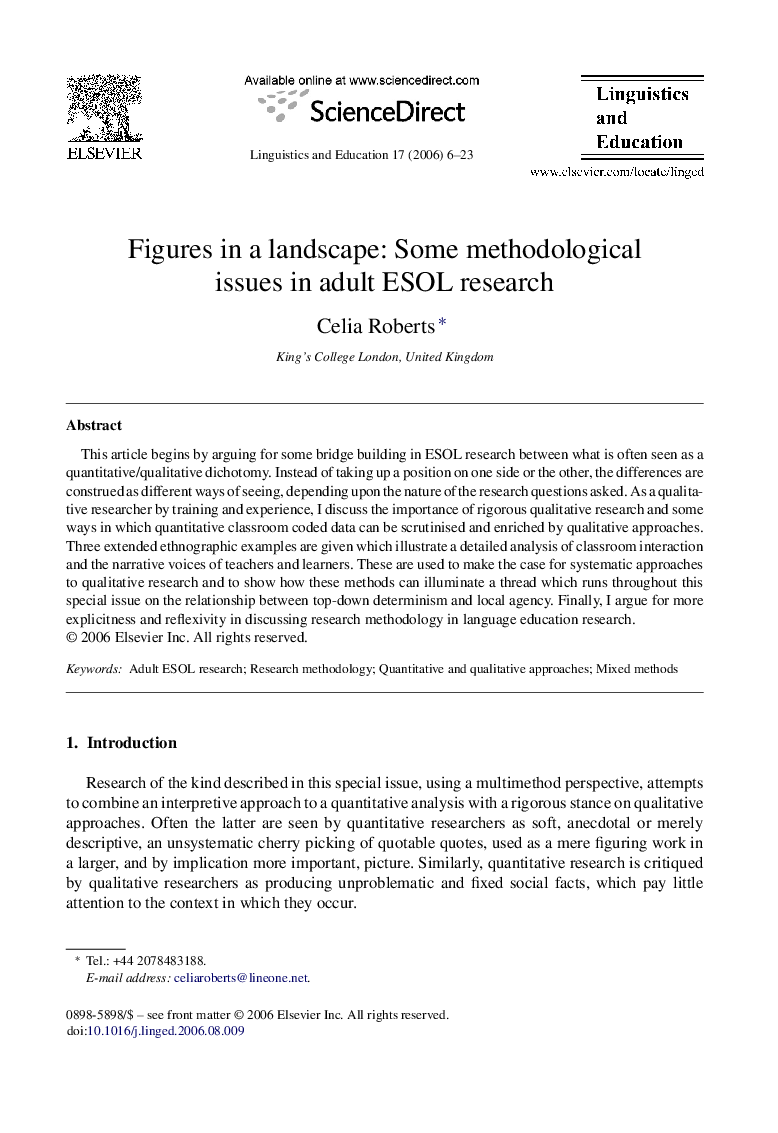| Article ID | Journal | Published Year | Pages | File Type |
|---|---|---|---|---|
| 366419 | Linguistics and Education | 2006 | 18 Pages |
This article begins by arguing for some bridge building in ESOL research between what is often seen as a quantitative/qualitative dichotomy. Instead of taking up a position on one side or the other, the differences are construed as different ways of seeing, depending upon the nature of the research questions asked. As a qualitative researcher by training and experience, I discuss the importance of rigorous qualitative research and some ways in which quantitative classroom coded data can be scrutinised and enriched by qualitative approaches. Three extended ethnographic examples are given which illustrate a detailed analysis of classroom interaction and the narrative voices of teachers and learners. These are used to make the case for systematic approaches to qualitative research and to show how these methods can illuminate a thread which runs throughout this special issue on the relationship between top-down determinism and local agency. Finally, I argue for more explicitness and reflexivity in discussing research methodology in language education research.
